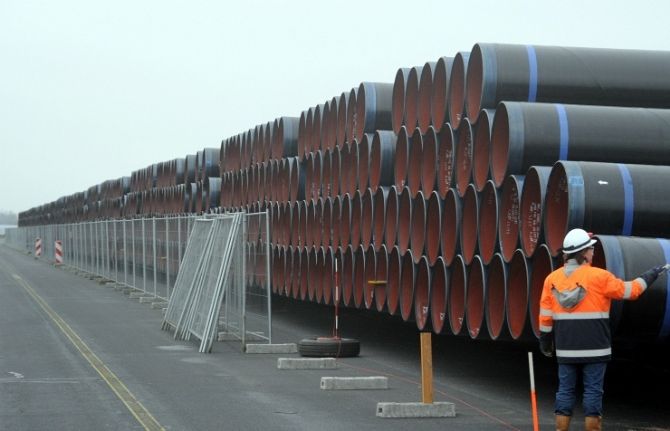
403
Sorry!!
Error! We're sorry, but the page you were looking for doesn't exist.
Turkish Stream good for 'Europe's energy security'
(MENAFN- The Journal Of Turkish Weekly) The Turkish Stream gas pipeline will help increase Europe's energy security, Boris Abramov, Russia's trade representative to the U.K. said on Tuesday.
Speaking at the 2nd Russian Energy Forum, sponsored by Turkey's Anadolu Agency, Abramov stated that Russia signed a deal in December 2014 with Turkey's state-owned natural gas company, BOTAS on constructing a pipeline with a capacity of 63 billion cubic meters.
Projects like the Turkish Stream pipeline are set to enhance Turkey's position in the international energy market, since the country is considered to be a secure route for infrastructure and economically stable.
The 1,100-kilometer pipeline will transfer 47 billion cubic meters of gas initially to the Turkey-Greece border, Abramov said.
"Our partners in Greece support the project," said Abramov, reminding that Greece's Prime Minister Alexis Tsipras marked the need for diversification of natural gas supply to Europe. Enhancing Turkish Stream to Greece is vital for the project's future, according to Abramov.
The Turkish Stream project plans to carry Russian natural gas through the Black Sea to reach Turkey's Thrace region in its northwest and take the gas to the Turkish-Greek border.
However, it is not certain which southeastern European countries will join the Turkish Stream.
Macedonia, Serbia, Albania, Montenegro, Bosnia and Herzegovina, Croatia, Slovenia and Slovakia are possible countries through which to reach central Europe.
Abramov also highlighted that Europe will keep being Russia's major partner. "I hope the political crisis in Ukraine will not prevent Russia's gas supply to the country," he added.
The forum, hosted by the London-based conference and event organizer Eurasian Dynamics, will be attended by high-level executives from energy companies, as well as representatives from the private sector and of governments.
The Russian energy sector's future under the current Western sanctions, its financial environment, risks and opportunities in the medium- and long-term are some of the topics to be discussed.
Speaking at the 2nd Russian Energy Forum, sponsored by Turkey's Anadolu Agency, Abramov stated that Russia signed a deal in December 2014 with Turkey's state-owned natural gas company, BOTAS on constructing a pipeline with a capacity of 63 billion cubic meters.
Projects like the Turkish Stream pipeline are set to enhance Turkey's position in the international energy market, since the country is considered to be a secure route for infrastructure and economically stable.
The 1,100-kilometer pipeline will transfer 47 billion cubic meters of gas initially to the Turkey-Greece border, Abramov said.
"Our partners in Greece support the project," said Abramov, reminding that Greece's Prime Minister Alexis Tsipras marked the need for diversification of natural gas supply to Europe. Enhancing Turkish Stream to Greece is vital for the project's future, according to Abramov.
The Turkish Stream project plans to carry Russian natural gas through the Black Sea to reach Turkey's Thrace region in its northwest and take the gas to the Turkish-Greek border.
However, it is not certain which southeastern European countries will join the Turkish Stream.
Macedonia, Serbia, Albania, Montenegro, Bosnia and Herzegovina, Croatia, Slovenia and Slovakia are possible countries through which to reach central Europe.
Abramov also highlighted that Europe will keep being Russia's major partner. "I hope the political crisis in Ukraine will not prevent Russia's gas supply to the country," he added.
The forum, hosted by the London-based conference and event organizer Eurasian Dynamics, will be attended by high-level executives from energy companies, as well as representatives from the private sector and of governments.
The Russian energy sector's future under the current Western sanctions, its financial environment, risks and opportunities in the medium- and long-term are some of the topics to be discussed.

Legal Disclaimer:
MENAFN provides the
information “as is” without warranty of any kind. We do not accept
any responsibility or liability for the accuracy, content, images,
videos, licenses, completeness, legality, or reliability of the information
contained in this article. If you have any complaints or copyright
issues related to this article, kindly contact the provider above.

















Comments
No comment